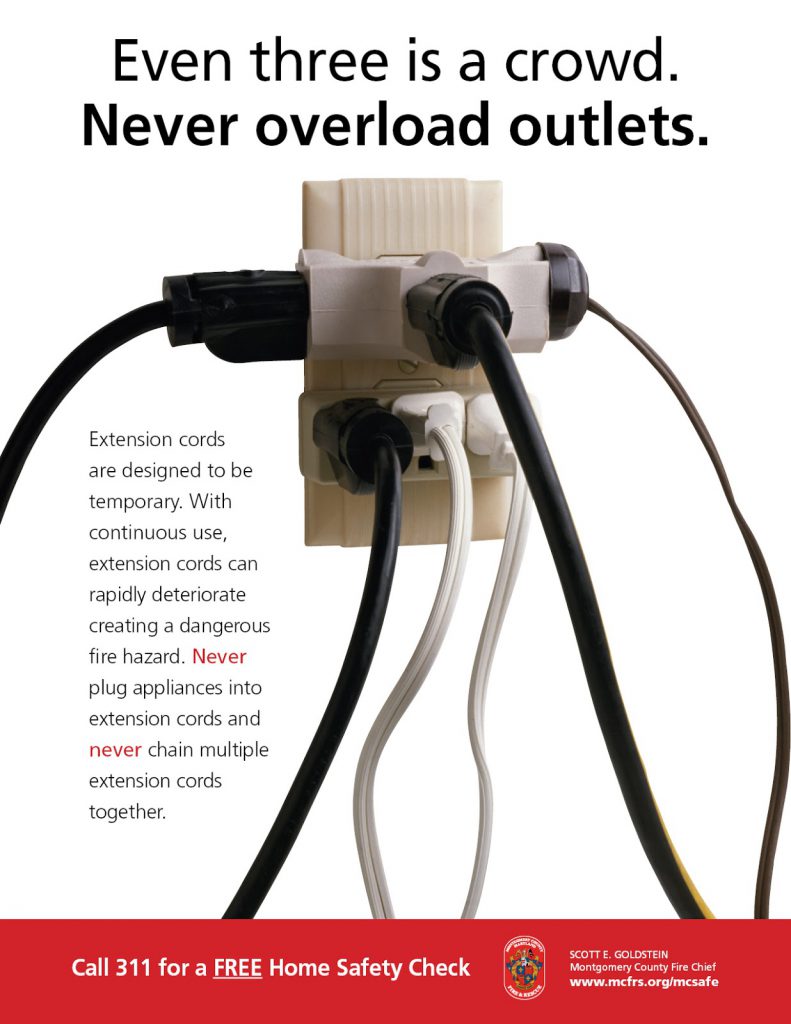Eight Things Never to Do With an Extension Cord
Extension cords are a convenient way to bring temporary power to electrical devices. Used without proper caution, they can become a fire hazard and pose a serious risk to your personal safety. Follow these tips to help keep your home safe:
Selecting extension cords
- Purchase only cords that have been approved by an independent testing laboratory.
- For outdoor projects, use only extension cords marked for outdoor use.
- Read the instructions (if available) for information about the cord’s correct use and the amount of power it draws when running.
- Select cords that are rated to handle the wattage of the devices with which they’ll be used. A cord’s gauge indicates its size: The smaller the number, the larger the wire and the more electrical current the cord can safely handle.
- Also consider the length you’ll need. Longer cords can’t handle as much current as shorter cords of the same gauge.
- Choose cords with polarized or three-prong plugs.
- For use with larger appliances, thick, round, low-gauge extension cords are best. For smaller appliances and electronics, you can use thin or flat cords.
Using extension cords
- Never remove an extension cord’s grounding pin in order to fit it into a two-prong outlet.
- Never use extension cords to power appliances. Plug appliances directly into wall outlets. .
- Never use indoor extension cords outdoors.
- Don’t plug multiple cords together.
- Don’t run extension cords under rugs or furniture.
- Never tape extension cords to floors or attach them to surfaces with staples or nails.
- Don’t bend or coil cords when they’re in use.
- Immediately stop using extension cords that feel hot to the touch or show signs of deterioration.
Caring for extension cords
- Always store cords indoors.
- Unplug extension cords when they’re not in use.
- Throw away damaged cords.
- Pull the plug—not the cord—when disconnecting from the outlet.
- Consider covering unused cord receptacles with childproof covers.
And remember that extension cords are intended as temporary wiring solutions. If you find you’re using them on a permanent basis, consider updating your home’s electrical system.
Note: the information in this article was obtained from various sources including State Farm Insurance. While it is believed to be reliable and accurate, we do not warrant the accuracy or reliability of the information. These suggestions are not a complete list of every loss control measure. The information is not intended to replace manuals or instructions provided by the manufacturer or the advice of a qualified professional.
